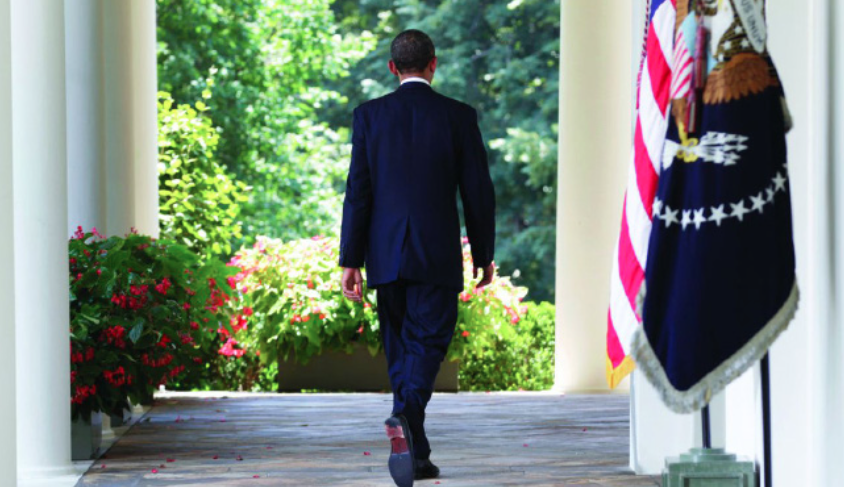By Shamayeta Rahman, Transcript Reporter
When he entered the Oval Office, Barack Obama, 47, the junior senator from Illinois had made history as the United States’ first African-American President. He was inaugurated into office on Jan. 29, 2008 with an economy on the verge of a recession, skyrocketing unemployment rates and two wars that were nowhere near ending.
Now, after eight years and two terms served in office, as he grows closer to the end of his presidency, it is time for a retrospective analysis of his successes and failures, and what he will be leaving behind for his successor.
When campaigning in 2008, Obama defeated then Republican nominee John McCain with a majority of 365 electoral votes. A media sensation and a symbol of hope and change, Obama spoke loudly of his opposition to the war in Iraq and his intentions to end it, eradicating weapons of mass destruction around the world, and strengthening ties with allies to finish the fight with the al-Qaida and the Taliban.
He has always been a spokesperson on equality and LGBTQA+ rights and has been clear about promoting equal rights for men and women. His tech-savviness and progressiveness made him well-liked among the younger generation, and his charismatic personality did the rest.
Within the first 100 days of his inauguration, Obama put out an order to shut down Guantanamo Bay, but the Congress did not let it go through and started developing plans to deploy the troops from Iraq. He was awarded a Noble Prize for his promise to end the war in Iraq.
Having been elected in the midst of the subprime mortgage crisis, Obama acted soon to sign the American Recovery and Reinvestment Act of 2009, a $787 billion economic stimulus geared to helping the economy recover from the terrible recession. By the end of his first term, the unemployment rate had come down from 10 percent to 7.7 percent. And today, eight years after the Great Recession, the unemployment rate is back at its natural level much to the credit of the policies taken up by the Federal Reserve and the Obama Administration.
No president has ever had all their decisions met without some dissent. Although a popular figure, Obama has faced scrutiny about some of his policy decisions over the years. In 2011, the Congress decided to not support the president’s “involvement” in Libya which he disregarded as military action started up under NATO operations. Some deemed it to be an unconstitutional act on his behalf.
Again in 2015, the decision to get involved in Syria in the overthrowing of President Bashar-Al-Assad and getting rid of their chemical weapons was seen by the U.S. public as unnecessary specially in light of the fact that President Vladimir Putin had extended his support to Assad, and engaging in Syria would mean a rise in tensions with Russia.
Despite that, Obama does also have many great political successes in terms of renegotiating relations with Cuba, being the first U.S. President to visit Hiroshima since World War II, succeeding in negotiating with Iran, leading the war on terror and ISIS and most notably the assignation of Osama bin Laden. Though some of his decisions over the years have been disappointing to the public, others have been equally lauded.
Obama worked relentlessly to make the Affordable Care Act or Obamacare a reality. It helped provide health insurances to over 20 million uninsured Americans and made health care a lot more accessible to those who are struggling with poverty.
However, there have been lots of criticisms of Obamacare as well, noting its huge fees for not having insurance and not providing insurance, the rising costs in insurance premiums and the underemployment due to the specificity of this mandate. The health care system will need to be improved whether it is repealed or not.
Donald Trump, the next president of the U.S., will have to figure out how to reduce national debt which is currently at 75 percent of the gross domestic product, make reforms in the health care system and immigrations process and take on the role of ending multiple involvements in the Middle East.
We have four years to see if Trump can fill Barack Obama’s shoes, who in the end of the day is a well-loved President who worked with the nation’s best interest in heart despite his many shortcomings.
